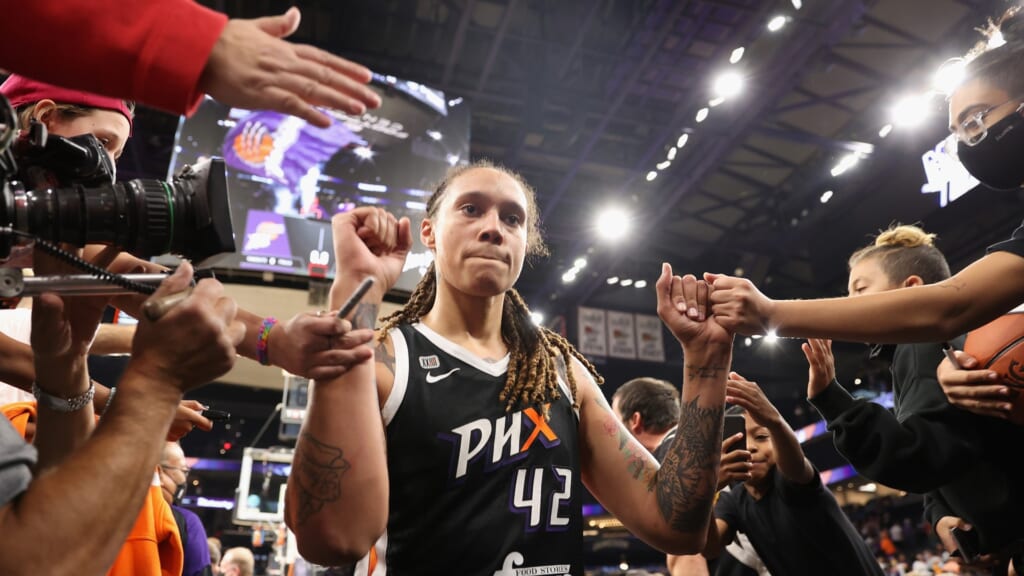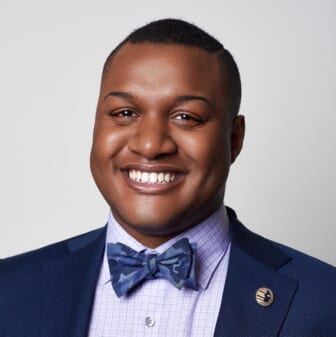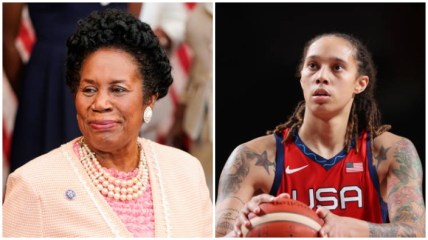Brittney Griner is a Black queer woman. Here’s why we can’t ignore intersectionality in Russia’s targeted detainment of her
OPINION: Russia has a violent, racist history against the LGBTQIA community. There’s no doubt that the WNBA star’s gender, sexuality and race are at play.

Editor’s note: The following article is an op-ed, and the views expressed are the author’s own. Read more opinions on theGrio.
Over the weekend, I was shaken by the news that Russia had detained Phoenix Mercury center Brittney Griner on allegations that she had vape cartridges that contained hashish oil in her luggage at the Sheremetyevo airport near Moscow. Given the current tension between Russia and the United States over Ukraine, I’m not quick to believe anything Russia has claimed regarding our citizens. However, one thing I know for sure is that Griner’s lived experience as an openly Black queer woman is nothing to be ignored in this dangerous ordeal.
Much has been said on social media about Russia’s problematic history of disinformation, racism and downright hate for America. But its ongoing legacy of anti-LGBTQ sentiment isn’t to be taken lightly in this case. Russian President Vladimir Putin has made it a point to prioritize a “gay propaganda” agenda during his reign that has equated homosexuality with pedophilia and has jailed queer activists. Given that Griner is out and proud, married to her partner and has embraced a gender non-conforming presentation—being detained in a country whose leader has called gender fluidity “a crime against humanity” should alarm us all.
Griner isn’t just a Black American, but a Black queer woman—which is why intersectionality can’t be denied here. The term, coined by Dr. Kimberlé Crenshaw, is defined as “the interconnected nature of social categorizations such as race, class, and gender, regarded as creating overlapping and interdependent systems of discrimination or disadvantage.” In Russia, overlapping marginalized identities can lead to more severe consequences for individuals. For example, in recent anti-LGBTQIA purges across its country, the Kremlin ignored kidnappings and killings of gay men in the Chechen Republic, an area that has a predominately Muslim population. Such homophobia and Islamophobia being conflated by Russia shouldn’t come as a surprise—another sign that racism, sexism and homophobia are at play right now.

For Black people keeping Griner in their prayers during this tough time, let this serve as another reminder that we should be acknowledging and accepting members within our community in all of their multitudes. Russia isn’t erasing the fact that Griner is also queer; neither should we collectively. Too often in pop culture, we treat being Black and LGBTQIA as an either/or when it’s BOTH for members of our community. In times like these, we’re reminded that bigotry is nuanced and multidimensional. Russia has made it clear that it’s after Muslims, LGBTQIA people, Black and brown people, and more. Let this serve as an opportunity to protect those among us who live in multitudes as well.
It’s hard to call out Russia and not acknowledge the lack of intersectionality in the United States. Right now, Congress hasn’t been able to pass the Equality Act, a pivotal piece of legislation that would federally protect LGBTQIA across the country. What is still a shocker to many, the Supreme Court’s same-sex marriage equality ruling in 2015 wasn’t the end of fighting for LGBTQIA rights in America. In many states across America, a queer couple can get married over the weekend and still be denied public accommodations, job protections and housing when they return to work on Monday. For example, my husband and I have LGBTQIA protections in our city of Philadelphia, but if we lived in other parts of Pennsylvania, the same couldn’t be said in less progressive counties.
Translation: As a Black queer person, I can still be legally discriminated against for being queer today like my Black straight grandparents were decades ago.
This is why Griner’s current detainment should not only be a wake-up call of how traumatic things can get in Russia but how problematic things are in our own backyard. Let’s pray for a speedy, safe return for her but also actively work towards a more inclusive and protected homeland for her as well.

Ernest Owens is the Editor at Large of Philadelphia magazine and CEO of Ernest Media Empire, LLC. The award-winning journalist has written for The New York Times, NBC News, USA Today and several other major publications. Follow him on Facebook, Twitter, or Instagram and ernestowens.com.
TheGrio is FREE on your TV via Apple TV, Amazon Fire, Roku, and Android TV. Please download theGrio mobile apps today!


